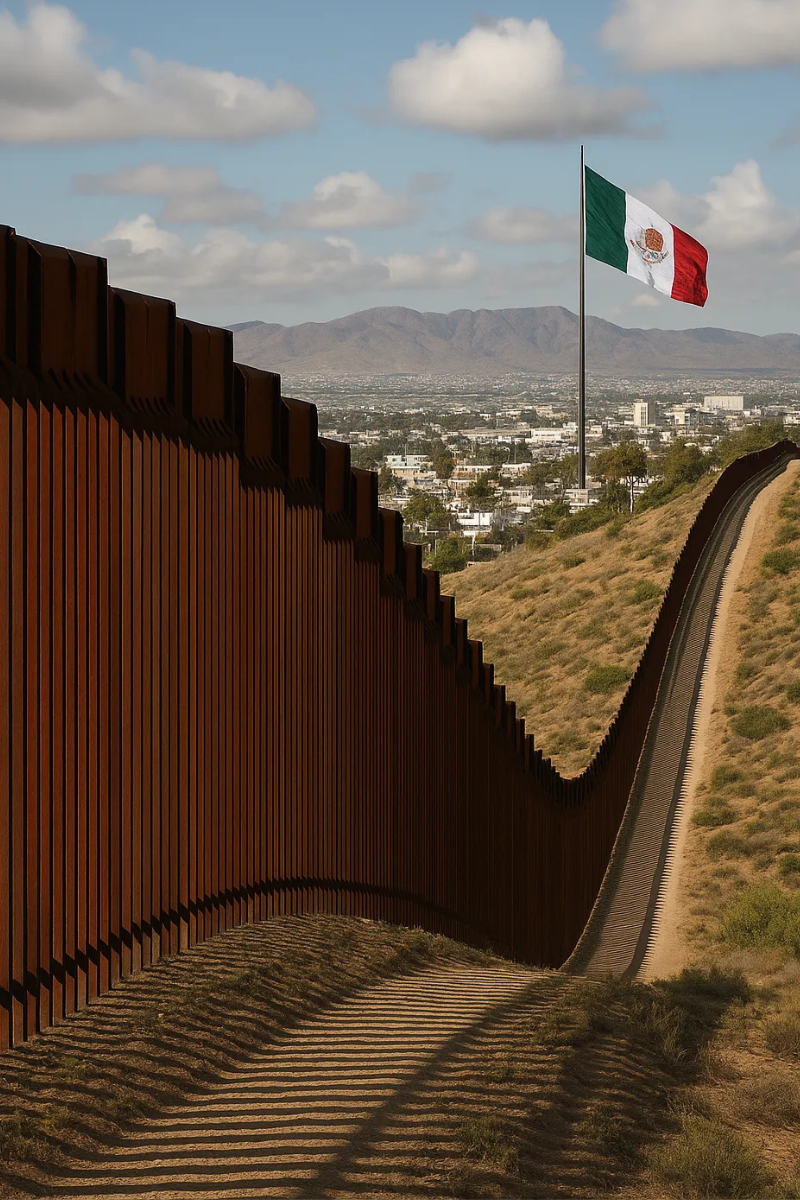Mexico has become a strategic pawn without a voice
by Stephanie Henaro.
In the global game of power, some nations move, and others are moved.
Mexico, the world’s 13th largest economy and the United States’ top trading partner, should be a strategic powerhouse. It has all the credentials: geographic proximity to the world’s leading economy, rich natural resources, a youthful population, and an essential role in global supply chains. And yet, it remains politically paralyzed, its voice barely audible in global decision-making.
Why?
Because Mexico is not a player. It is being played.
While the United States and China engage in trade wars and strategic decoupling, Mexico tightens labor rules and enforces stricter origin standards — not by sovereign design, but to comply with demands from above. While fentanyl ravages U.S. cities, Mexico absorbs the blame, while the weapons that fuel its internal wars flow south from Texas and Arizona. And while the global South begins to awaken — through the expansion of BRICS, new development banks, and climate justice diplomacy — Mexico watches from the sidelines, reluctant to step beyond its assigned role.
This isn’t a matter of lack of capacity. It’s a crisis of political imagination.
Mexico’s foreign policy has mutated. Once guided by the Estrada Doctrine — respectful of sovereignty, proudly non-interventionist — it now defaults to passivity. At best, it offers hollow statements. At worst, it practices what could be called a Kalimán Doctrine: symbolic, reactive, and terminally harmless. (Kalimán, for the uninitiated, is a Mexican comic book superhero known for meditation and moral speeches, not action.)
Mexico has no strategic intelligence system of its own. Its military remains focused on internal policing, not external defense. It has no digital sovereignty, no serious voice in Latin American integration, and has even faded in the OAS. When regional crises erupt — from Venezuela to Haiti — Mexico neither proposes nor leads.
What it does, consistently, is manage the border.
It functions as a geopolitical cushion for the United States: absorbing migration flows, cooperating on drug interdiction, and preserving economic asymmetries in exchange for market access. This “border-first” diplomacy defines Mexico’s role not as a sovereign actor, but as a containment zone.
But this moment in history — the collapse of the liberal order, the rise of strategic regionalism, the multiplication of voices from the South — is also a window of opportunity. If Mexico doesn’t act now, it may lose the chance to ever become a narrator of the global story.
The world is being rewritten. But Mexico is still waiting for permission to speak.
Editor’s note: this article was originally published on Stephanie Henaro’s Medium. It is re-printed here with permission.


